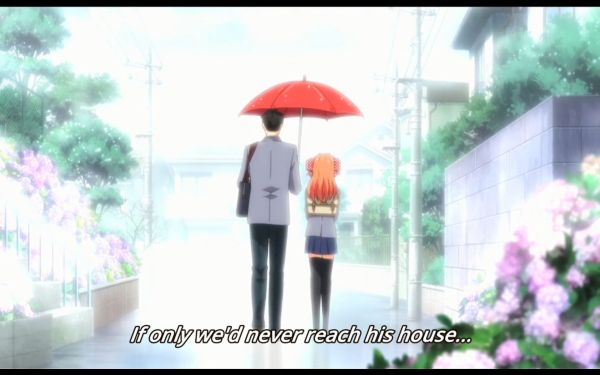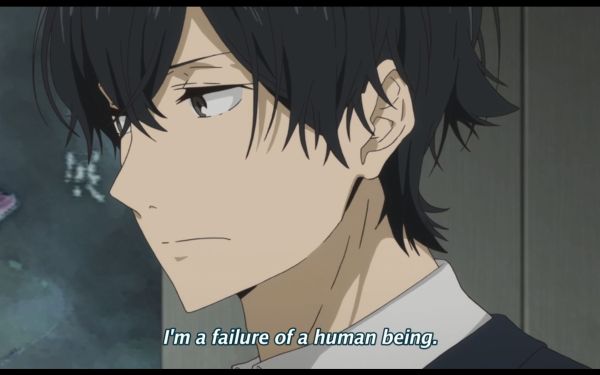
The time measured by clocks is constant, but the time measured by the soul is bewildering.
Time is something we are all very familiar with, and yet some scientists doubt that it exists: The equations that describe the universe work just as well without time. It seems to be just a name we have put on the increase of chaos: Intuitively if we see a video of a glass assembling itself from scattered shards, we know that it is being played in reverse. And yet, arguably, for most of our lives we are such a thing as that glass coming together. Our memories come together creating a more or less whole and balanced self. Even plants that grow are such things, being assembled from tiny pieces into an impressive whole. Life is like a countercurrent in the stream of time.
Although recent science dismisses time, and classic science presents a clean arrow of time, most humans have a more vague sense of causality. Yes, causes lead to effects, the past creates the present and the present the future. But we also feel that the future is real and influences the present. In English we even use the same word, for instance: “The reason I get paid is that I go to work. The reason I go to work is to get paid.” How can the two things be each other’s reason?
Our mind seems able to travel through time to a certain degree. Through the power of our memory, we can revisit the past and relive the joys and sufferings, although we cannot change it except in our imagination. By the power of anticipation we look into the future, although a future that is less certain than the past, and we take with us information back to the present. We study the outcome of our actions before we even act. And then we decide: “No, it is not worth it” or “Yes, it is worth it” and so the future – which does not yet exist – changes the present, which definitely exists.
Time is weird.
***
Time does not always seem to move at the same speed, either. Objectively it does, or very nearly so. (It slows down slightly when we accelerate, or so the theory of relativity says. But in ordinary life this is not measurable. You won’t live longer by speeding on the highway, possibly quite the opposite!)
When we are children, time seems to move quite slowly. A summer holiday is an ocean of time and we arrive on the other side as a changed person. In old age, the same summer is like a puddle in the road that we step over, barely noticing. Or that is the general tendency. But do all of us experience time the same way? I don’t think so. I have a strong feeling that, for some reason, my subjective time runs less fast than others my age.
“If you are a lifelong bachelor, you may not live till you are 100, but at least it will feel that way” someone said when I was a kid. As a lifelong bachelor, I certainly agree with this, but I don’t see it as a bad thing. “Don’t kill time, it is your life” said the Christian mystic and teacher Elias Aslaksen. I try to not dissolve completely into my habits and obligations, but learn something new and be aware of at least some of what goes on during my day.
Part of my subjective feeling of slow time is that I spend a lot of time observing lower worlds where time moves faster. Most notably, I have read books since I was little, although I read less novels now. The experience of the book’s characters are added to my own, giving me a feeling that I have lived much more than I actually have. (It is not just me: Old people sometimes tell of something that happened to them when they were younger, which the bookish listener will recognize as having happened to a literary character.) I am not sure if the same applies to movies, in which case most people should have this experience. I don’t watch movies much, except for some Japanese animation.
As a (mainly hobby) writer, I create worlds where years pass over the course of weeks of real time. (Not all writers do this – some my spend a year on describing a week.) I also play games such as The Sims series, where simulated humans live, age and eventually die after some days or weeks of real time. Other favorite games of my past are the Civilization series, where entire civilizations rise and fall over the course of a few days. Watching this gave me a subjective feeling of old age, which blends well with my lifelong interest in history and my reading of old books. I know objectively that I was born in 1958, but a part of me feels like I wandered the streets of ancient Uruk before Rome was even a village.
***
Yet another factor that determines subjective time may be how fast you process information. The more data that passes through and is consciously registered by your brain, the more time would seem to have passed. We know that in certain critical moments, the doors of perceptions are thrown wide open and time seems to slow to a crawl. Unfortunately it is usually not possible to make your body speed up to the same degree.
In my fourth dicewriting story, which I stared just after my previous entry, the main character seems set to become a speedster. Not on the scale of The Flash from the TV series that I believe is still ongoing in America, or the comic books of the same name. Just … living faster.
In that story, speed is one of Erlend’s five specializations, and with an expected duration of 6 years this could make a big difference. I look forward to seeing how this will unfold when we reach the borderlands of human experience. How is it like when the world slows down to half speed and a day feels like it has 48 hours? How do you interact with the people around you? If it happens gradually enough, you probably adapt seamlessly, and don’t rock the boat by being too different in everyday life.
As it happens, I have a coworker of sorts – technically his company is the client of ours, but we work together and eat lunch together – and he is highly intelligent, possibly more than me. It is hard to say: While my intelligence is exceptionally wide, reaching into thoughts that most people never consider thinking, his intelligence is fast. Ordinary humans try his patience, because he knows what they are trying to say while they are still beginning to say it, and then they just keep rambling on, unaware that he already understands it better than they do. Usually he spends his lunch break reading his smartphone. The leftover attention is sufficient to keep up with what everyone in the room is saying. This guy strikes me as a good match for a “near speedster”, someone who lives fast in a slow world. (Of course I won’t borrow any other traits from him. My characters are all unique, not based on real people.)
The clocks keep ticking, but perhaps we each hear them tick at our own speed…

